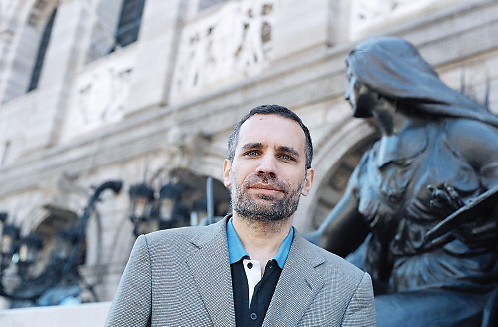Biographer Explores Character, Pathology, and Achievement
Abstract
Biographer Joshua Kendall explores the interplay between character—and character pathology—and achievement.
“Obsessive: excessive, often to an unreasonable degree.”— Merriam Webster’s Collegiate Dictionary, 11th Edition
The polymath who was father of today’s Merriam-Webster’s Dictionary—originally Webster’s American Dictionary of the English Language, first published in 1828—may be one of the most underrecognized but influential figures from America’s revolutionary and post-revolutionary period. Noah Webster, confidant of George Washington and Alexander Hamilton, was editor during the republic’s early years of American Minerva, New York City’s first daily newspaper. He served as a state representative from Connecticut and Massachusetts, was a founder and early president of Amherst College, and was the author and publisher of a grade-school “speller” that well into the 19th century was teaching school-age Americans to read.

Joshua Kendall writes about how obsessive features of some personalities in history have helped them achieve success..
To the extent that he is remembered at all, Webster is remembered best for his dictionary, the focus of his life’s effort and the fruit of one large idea that Webster nurtured and travelled the towns of 18th-century America to propagate: that America needed to assert not only its political and economic independence from Britain, but its cultural independence as well by codifying a uniquely American idiom of the English language.
An accomplished fellow, by anyone’s standard. But according to Webster biographer Joshua Kendall, Webster was also a problem—to others and, one suspects, to himself. Widely regarded in his own time as vain, arrogant, and self-regarding, Webster had little capacity for connecting with others, and the drivenness and need for order that propelled his success may have been considered by others to be “excessive to an unreasonable degree.”
In The Forgotten Father: Noah Webster’s Obsession and the Creation of an American Culture (published by G.P. Putnam’s Sons), Kendall argues that Webster may have had what today would be called obsessive-compulsive personality disorder. “For this order lover who came close to a complete breakdown on several occasions, defining became his ruling obsession,” Kendall wrote. “The 30-year quest to complete the dictionary was inextricably linked to the fight to maintain his own sanity.”
Webster is not the only high-achieving obsessive that has caught Kendall’s attention. In 2008 he published The Man Who Made Lists: Love, Madness, and the Creation of Roget’s Thesaurus, which psychiatrist Peter Kramer, M.D., called a “fascinating account of the transformation of obsession into inspiration.”
“Going from Roget to Webster was kind of a natural,” Kendall told Psychiatric News in an interview. “Roget was a great British dictionary maker who was obsessed with lists and words, and when I looked to our own soil, I found in Webster a kindred spirit.”
Next year Kendall will publish America’s Obsessives: The Compulsive Energy That Built a Nation, cataloguing the obsessive traits of such high achievers as Thomas Jefferson, Melvil Dewey, Estee Lauder, and Ted Williams.
“The job of a biographer is to get inside of a subject’s head,” Kendall said. “I guess what fascinates me about obsessional types is that they are always pretty clear about what is on their minds.”
In the telling of these personal American histories, Kendall is exploring the complex interplay between character—and character pathology—and human achievement. As such, his subject is one that also captures the attention of psychiatric diagnosticians and researchers, especially those interested in personality traits and disorders.
Past APA President and personality disorders expert John Oldham, M.D., was one of dozens of mental health professionals Kendall consulted in his research. In an interview with Psychiatric News, Oldham said he has not reviewed the texts of Kendall’s work but consulted with the author in a general way about the emerging consensus among personality researchers: that a mix of personality traits is common to just about everyone and that the intensity of these traits may vary along a continuum from benign—even useful—to extremely disabling.
In a 1995 lay manual that Oldham co-wrote with Lois Morris titled The New Personality Self-Portrait: Why You Think, Work, Love and Act the Way You Do, he explored the ways in which personality traits that can be disabling in extreme cases can also be the keys to successful living when those traits are moderated.
“We took each category of personality disorder and conceptually ‘turned the volume down’ so that traits that are extreme in the case of a personality disorder might be looked at as healthy, adaptive styles.”
So, for instance, the traits of obsessive-compulsive personality disorder with the “volume turned down” constitute a “conscientious style” personality when moderated: an individual always concerned with doing “the right thing” and doing it the “right way,” with a knack for order and detail—the kind of fellow who might be very good at compiling a dictionary.
If the tangle of good and not-so-good traits that everyone displays is a conundrum for psychiatric diagnosticians, it is also a challenge for biographers striving to avoid the pitfalls of hagiography and the smear job. To capture the richness of a human life is to appreciate that troubled or even deeply flawed individuals may often accomplish great things.
“Biographers are tempted to either slime their subjects or idealize them,” Kendall said. “But people are so much more complex.” ■



